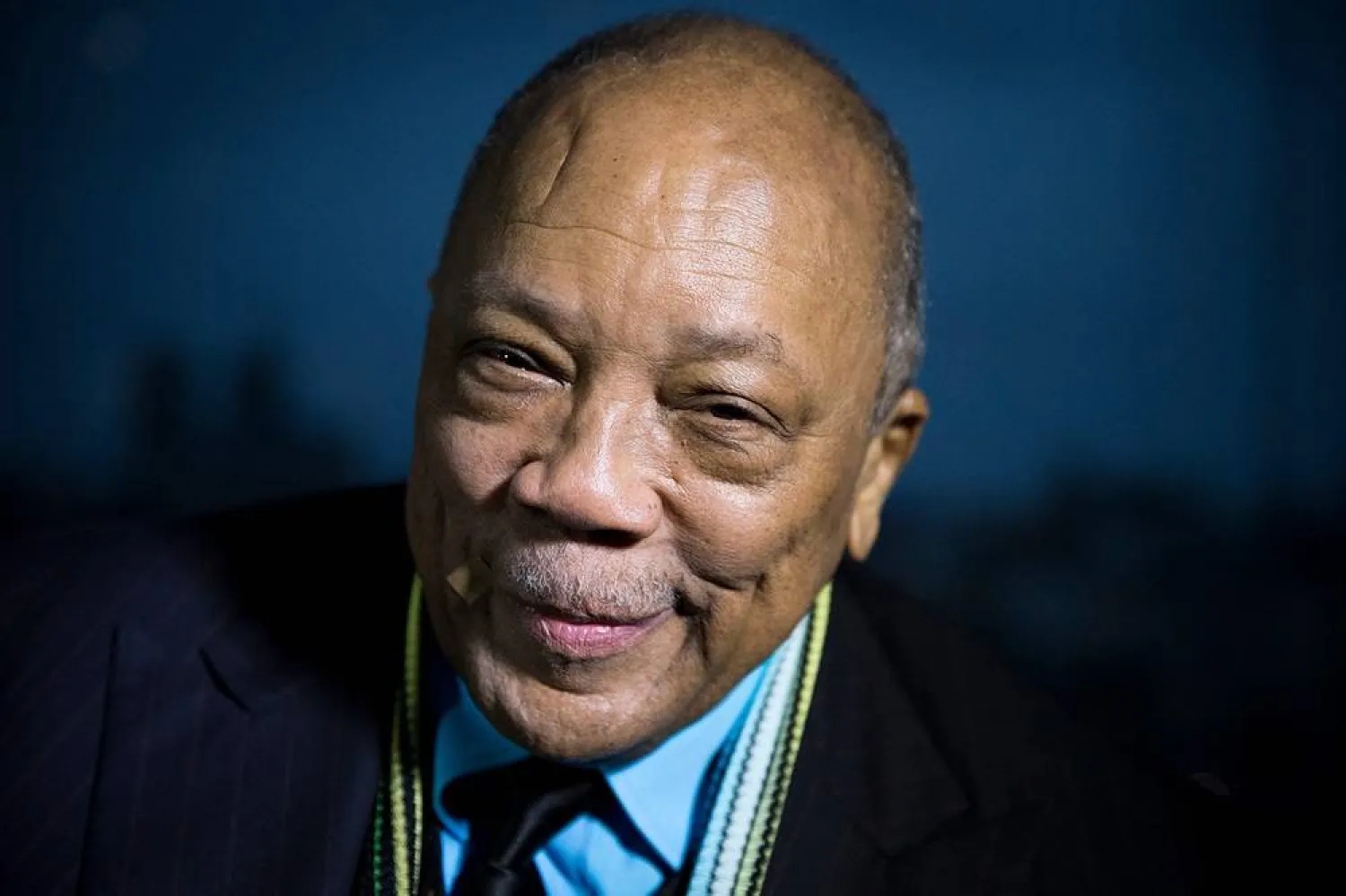Quincy Jones, the multi-talented music titan whose vast legacy ranged from producing Michael Jackson’s historic “Thriller” album to writing prize-winning film and television scores and collaborating with Frank Sinatra, Ray Charles and hundreds of other recording artists, has died at 91.
Jones’ publicist, Arnold Robinson, says he died Sunday night at his home in the Bel Air section of Los Angeles, surrounded by his family.
“Tonight, with full but broken hearts, we must share the news of our father and brother Quincy Jones’ passing,” the family said in a statement. “And although this is an incredible loss for our family, we celebrate the great life that he lived and know there will never be another like him.”
Jones rose from running with gangs on the South Side of Chicago to the very heights of show business, becoming one of the first Black executives to thrive in Hollywood and leaving behind a vast musical catalog that includes some of the richest moments of American song and rhythm. Over the past half century, it was hard to find a music lover who did not own at least one record with Jones’ name on it or someone in the music, television or movie industries who did not have some connection to him.
Jones kept company with presidents and foreign leaders, movie stars and musicians, philanthropists and business leaders. He toured with Count Basie and Lionel Hampton, arranged records for Sinatra and Ella Fitzgerald, composed the soundtracks for “Roots” and “In the Heat of the Night,” organized President Clinton’s first inaugural celebration and oversaw the all-star recording of “We Are the World.”
In a career that began when records were still played on vinyl at 78 rpm, singling out any work seems unfair. But honors likely go to his productions with Jackson on “Off the Wall,” “Thriller” and “Bad,” albums universal in their style and appeal. Jones’ versatility and imagination fit perfectly with the bursting talents of Jackson as he sensationally transformed from child star to the “King of Pop.” On such classic tracks as “Billie Jean” and “Wanna Be Startin’ Somethin’,” Jones and Jackson drew upon disco, funk, rock, pop, R&B and jazz and African chants. For “Thriller,” some of the most memorable touches originated with Jones, who recruited Eddie Van Halen for a guitar solo on the genre-defying “Beat It” and brought in Vincent Price for a ghoulish voiceover on the title track.
“Thriller” sold more than 20 million copies in 1983 alone, helped Jackson become the first major Black artist to have a video played on MTV and influenced countless performers.
“Michael had the look and the voice, and I had every sound you can think of,” Jones would explain.
The list of his honors and awards fills 18 pages in his 2001 autobiography “Q”: 28 Grammys (out of 80 nominations), an honorary Academy Award and an Emmy for “Roots.” He also received France’s Legion d’Honneur and the Rudolph Valentino Award from the Republic of Italy. In 2001, Jones was named a Kennedy Center Honoree for his contributions to American culture. He was the subject of a 1990 documentary, “Listen Up: The Lives of Quincy Jones,” and his memoir made him a best-selling author.
“Despite all the Grammys and the special awards and testimonials that maturity bestows, it will always be the values you carry within yourself — of work, love, and integrity — that carry the greatest worth, because these are what get you through with your dreams intact, your heart held firm and your spirit ready for another day,” he wrote in his book.
Born in Chicago in 1933, Jones would cite the hymns his mother sang around the house as the first music he could remember. But he looked back sadly on his childhood, telling Oprah Winfrey: “There are two kinds of people: those who have nurturing parents or caretakers, and those who don’t. Nothing’s in between.” Jones’ mother suffered from emotional problems and was eventually institutionalized, a loss that made the world seem “senseless” for Quincy. He spent much of his time in Chicago on the streets, with gangs, stealing and fighting.
Music was his passion, and, almost literally, his salvation. As a boy, he learned that a Chicago neighbor owned a piano and he soon played it constantly himself. His father moved to Washington state when Quincy was 10 and his world changed at a neighborhood recreation center. Jones and some friends had broken into the kitchen and helped themselves to lemon meringue pie when Jones noticed a small room nearby with a stage. On the stage was a piano.
“I went up there, paused, stared, and then tinkled on it for a moment,” he wrote in his autobiography. “That’s where I began to find peace. I was 11. I knew this was it for me. Forever.”
Within a few years he was playing trumpet and befriending a young blind musician named Ray Charles, who became a lifelong friend. He was gifted enough to win a scholarship at the Berklee College of Music in Boston, but dropped out when Hampton invited him to tour with his band. Jones went on to work as a freelance composer, conductor, arranger and producer. As a teen, he backed Billie Holiday. By his mid-20s, he was touring with his own band.
“We had the best jazz band on the planet, and yet we were literally starving,” Jones later told Musician magazine. “That’s when I discovered that there was music, and there was the music business. If I were to survive, I would have to learn the difference between the two.”
His survivors include actor Rashida Jones and five other daughters: Jolie Jones Levine, Rachel Jones, Martina Jones, Kidada Jones and Kenya Kinski-Jones; son Quincy Jones III; brother Richard Jones and sisters Theresa Frank and Margie Jay.









